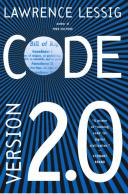Книга: Code 2.0
Part Three - Latent Ambiguities
Part Three - Latent Ambiguities
The story so far has focused on regulation — both the changing regulability of behavior in cyberspace (it is increasing) and the distinctive way in which behavior in cyberspace will be regulated (through code).
In this Part, I apply the analysis drawn so far to three areas of social and political life that will be affected by these changes — intellectual property, privacy, and free speech.
In each of these areas, I will identify values that are relevant. I will then ask how those values translate to life online. In some cases, the values carry over quite directly, but, in others, they produce what I called in Chapter 2 a “latent ambiguity.” That ambiguity forces us to choose between two very different conceptions of the value at stake. My aim is not to make that choice, but instead simply to throw at least two options into relief.
I have another objective in each chapter as well. In my view, the most important lesson about law in cyberspace is the need for law to account for the regulatory effect of code. Just as the wise regulator accounts for the way the market interacts with legal regulation, so too the wise regulator must account for the ways in which technology interacts with legal regulation. That interaction is often counterintuitive. But unless a regulator takes this interactive effect into account, the regulation — whether to control behavior or to protect certain liberties — will fail.
To know what values are relevant, however, we need a method for carrying values into a new context. I begin this part with an account of that method. The values I will describe are part of our tradition, and they need to be interpreted and made real in this context. Thus, I begin this part with one approach that the law has developed for recognizing and respecting these values. This is the interpretive practice I call “translation.” A translator practices a fidelity to earlier commitments to value. Latent ambiguities are those instances where fidelity runs out. We have nothing to be faithful to, because the choices we now face are choices that our forbears did not.[1]
- Part One. “Regulability”
- PART VII Appendices
- Part II Application Development Using C#
- PART II Desktop Fedora
- Part Four - Competing Sovereigns
- 9.1.1. Partitions
- Choosing a Partitioning Scheme
- Part Two - Regulation By Code
- PART V Programming Linux
- PART VI Fedora Housekeeping
- Planning Partition Strategies




